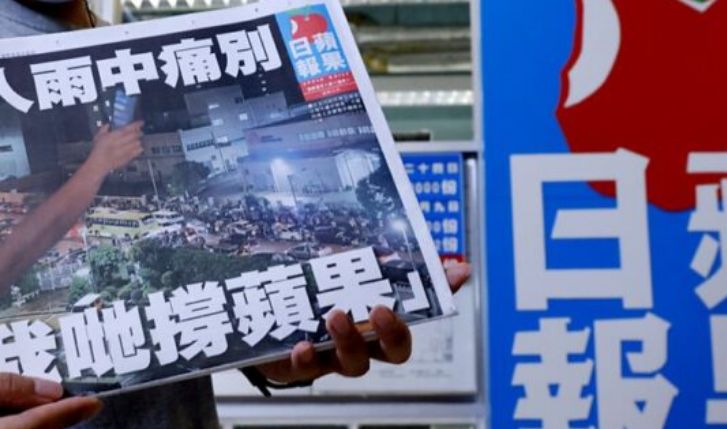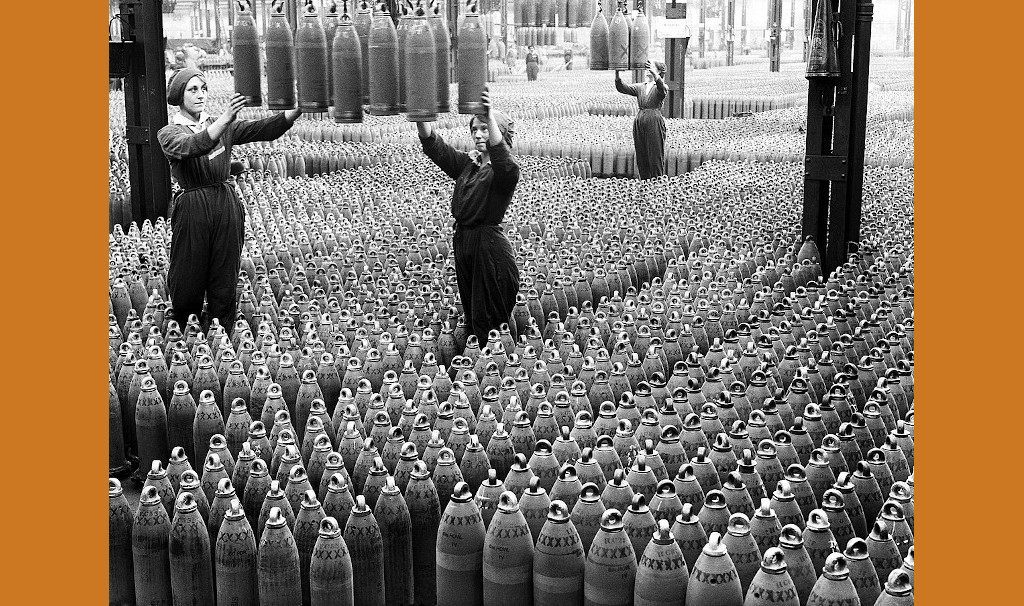Leïla Messaoudi is a member of Gauche Révolutionnaire (CWI in France).
 A second labour law to facilitate redundancies and short term contracts, an end to railway workers’ protected status and the national public railway enterprise, selection for university entrance, huge cuts in several public services, social benefits cuts, a new tax on pensioners. It’s a flood of attacks on the working class, on pensioners and on youth living conditions since the election of Emmanuel Macron as president in May last year.
It was clear that Macron was the bosses’ president and he has proved it rapidly. ‘Disruption management’: Macron’s strategy comes straight from big bosses’ management methods. But this is not only a strategy to succeed, for French capitalists to maintain their profits, it’s also a necessity, a matter of time. They drew conclusions from the last big movement against the El Khomri labour law in 2016 and the presidential election results in 2017. By these means, they are trying to avoid powerful fight-backs from the working class and the youth.
May 2018 – a key moment
Macron is rushing as fast as possible to open up new battle-fields in order to cut across the resistance. Since one month ago, the government has entered a new phase, a harder one, with a law on railway workers’ status and the transformation of the national railway company to the status of a private enterprise ‘led’ by the state.
France’s national railway is a state enterprise, but no longer a real public service. It’s a powerful multinational with several subsidiaries (Geodis, Keolys, Ouibus…). They want to destroy two things: break the railwayworkers’ statute before the competition opens up in the EU and solve the issue of the debt of the SNCF (French Railways). That’s why they are attacking now. In this way, the government has opened up a confrontation with an major section of the organised working class in France.
At the same time, the government of Macron and Philippe (prime minister) has decided to introduce selection for university entrance to begin in the next academic year – this coming September. Thirty two years ago in 1986, another right wing government tried the same thing – attacking nurses, railway workers and students. In 1995, prime minister Alain Juppé also tried to impose this change, at the same time as a pension law ‘reform’. Each time, the bosses and the government have been defeated. So, today’s battle is extremely significant for the future; a victory against the railway workers would be an ideological victory against the whole working class.
For one month, the government has had to confront resistance from several sectors and the beginning of coordinated action in some cities. There is a long term strike in the SNCF, with two days per week planned for three months between April and the end of June, plus long separate strikes in some hospitals and post offices, the students’ strikes, blockades and occupations… This political situation is very unstable and risky for the government.
Policy with no support
The real face of Macron’s policy is more and more obvious and visible to broader layers of the population. Surveys in the last few weeks show that Macron is losing support. Last Thursday, Macron did an official interview and a poll estimated that 52% of the population did not find him convincing. The railway workers’ solidarity web fund has collected more than €700, 000 in just one month!
Macron is losing ground. He is using more and more repression as the only solution to try to stop struggles – against the strikes, students’ blockades, trade unionists (through court cases) or environmental activists. This is the case with the renowned Notre Dame des Landes occupation against a new airport project nearby Nantes. Macron has sent thousands of CRS special police to evict those who have been living in the area (known as the ZAD) for five years. Violent police attacks and confrontations, with more than 80 people injured, are still taking place between ZADists and police. Even reactionary elements with fascist methods have appeared on the scene to try to stop student mobilisations such as in Montpellier – when a militia led by far right-wing teachers attacked a student occupation – or in Paris.
May 2018 will certainly be a month of strikes and actions in France. Tension is growing. Will it be a first round against Macron or a decisive mass struggle to stop his policies? The situation is still uncertain. It depends on the ability of the most combative layers to address broader layers in the population.
Mass struggle to stop Macron
The need for a mass struggle against Macron is obvious to thousands of workers and youth, but there is no plan or real idea of how to do it concretely and no real discussions on it. This is why amongst railway workers who are on the front line of the resistance, we can feel a certain caution and at the same time a clear willingness to be effective in the strike.
Workers assemblies organised by railway workers are, and will be, a key way of overcoming trade union divisions and giving a perspective to the struggle. Even if the student movement is still small, general assemblies are taken more and more seriously by those who want to broaden the struggle.
The next step in the movement will be on the 19th of April. There will be a day of strikes in several public services, rail workers, students… It’s not a national ‘inter-professional’ day of strikes, because of the divisions and sectarianism of the main trade union confederations’ leaderships. But it will bring together several different mobilisations and strikes and demonstrate the anger that exists and can have an effect on the general mood in the population.
Of course, the self-confidence of the working class and youth in their ability to stop Macron is directly linked with the political issues. The main left candidate in the presidential election last year, Jean-Luc Mélenchon of France Insoumise (France Unbowed) got more than seven million votes. If other ‘left’ candidates had rallied their (much smaller) electorate behind him he could have been in the second round against Macron instead of the far right Marine le Pen. The perspective has been delayed of a political struggle to break with the capitalist policies of former right-wing president Nicolas Sarkozy, of the Hollande-Valls ‘Socialist’ government or of the ‘new’ Emmanuel Macron and his ‘En Marche!’ party.
Some correct proposals have been made by Mélenchon and Olivier Besancenot (veteran anti-capitalist figure) for trade unions and political organisations to act together to stop Macron. A successful demonstration in Marseille last Saturday, 14th April, was initiated by the local (departmental) CGT union along with France Insoumise and others on the 14th of April. It showed the potential for a united, ‘all together’ struggle.
On 1st and 5th May, in Paris, there will also be common united demonstrations. Concrete proposals and political demands are needed to mobilise larger numbers of people from amongst the most advanced layers of workers and youth to join the struggle as fighters. In workplaces, schools and universities, in the streets, in the unions and in the movement of France Insoumise, Gauche Revolutionnaire is advocating mass struggle to stop Macron, fighting for a socialist program to put an end to his destructive capitalist policies.
A second labour law to facilitate redundancies and short term contracts, an end to railway workers’ protected status and the national public railway enterprise, selection for university entrance, huge cuts in several public services, social benefits cuts, a new tax on pensioners. It’s a flood of attacks on the working class, on pensioners and on youth living conditions since the election of Emmanuel Macron as president in May last year.
It was clear that Macron was the bosses’ president and he has proved it rapidly. ‘Disruption management’: Macron’s strategy comes straight from big bosses’ management methods. But this is not only a strategy to succeed, for French capitalists to maintain their profits, it’s also a necessity, a matter of time. They drew conclusions from the last big movement against the El Khomri labour law in 2016 and the presidential election results in 2017. By these means, they are trying to avoid powerful fight-backs from the working class and the youth.
May 2018 – a key moment
Macron is rushing as fast as possible to open up new battle-fields in order to cut across the resistance. Since one month ago, the government has entered a new phase, a harder one, with a law on railway workers’ status and the transformation of the national railway company to the status of a private enterprise ‘led’ by the state.
France’s national railway is a state enterprise, but no longer a real public service. It’s a powerful multinational with several subsidiaries (Geodis, Keolys, Ouibus…). They want to destroy two things: break the railwayworkers’ statute before the competition opens up in the EU and solve the issue of the debt of the SNCF (French Railways). That’s why they are attacking now. In this way, the government has opened up a confrontation with an major section of the organised working class in France.
At the same time, the government of Macron and Philippe (prime minister) has decided to introduce selection for university entrance to begin in the next academic year – this coming September. Thirty two years ago in 1986, another right wing government tried the same thing – attacking nurses, railway workers and students. In 1995, prime minister Alain Juppé also tried to impose this change, at the same time as a pension law ‘reform’. Each time, the bosses and the government have been defeated. So, today’s battle is extremely significant for the future; a victory against the railway workers would be an ideological victory against the whole working class.
For one month, the government has had to confront resistance from several sectors and the beginning of coordinated action in some cities. There is a long term strike in the SNCF, with two days per week planned for three months between April and the end of June, plus long separate strikes in some hospitals and post offices, the students’ strikes, blockades and occupations… This political situation is very unstable and risky for the government.
Policy with no support
The real face of Macron’s policy is more and more obvious and visible to broader layers of the population. Surveys in the last few weeks show that Macron is losing support. Last Thursday, Macron did an official interview and a poll estimated that 52% of the population did not find him convincing. The railway workers’ solidarity web fund has collected more than €700, 000 in just one month!
Macron is losing ground. He is using more and more repression as the only solution to try to stop struggles – against the strikes, students’ blockades, trade unionists (through court cases) or environmental activists. This is the case with the renowned Notre Dame des Landes occupation against a new airport project nearby Nantes. Macron has sent thousands of CRS special police to evict those who have been living in the area (known as the ZAD) for five years. Violent police attacks and confrontations, with more than 80 people injured, are still taking place between ZADists and police. Even reactionary elements with fascist methods have appeared on the scene to try to stop student mobilisations such as in Montpellier – when a militia led by far right-wing teachers attacked a student occupation – or in Paris.
May 2018 will certainly be a month of strikes and actions in France. Tension is growing. Will it be a first round against Macron or a decisive mass struggle to stop his policies? The situation is still uncertain. It depends on the ability of the most combative layers to address broader layers in the population.
Mass struggle to stop Macron
The need for a mass struggle against Macron is obvious to thousands of workers and youth, but there is no plan or real idea of how to do it concretely and no real discussions on it. This is why amongst railway workers who are on the front line of the resistance, we can feel a certain caution and at the same time a clear willingness to be effective in the strike.
Workers assemblies organised by railway workers are, and will be, a key way of overcoming trade union divisions and giving a perspective to the struggle. Even if the student movement is still small, general assemblies are taken more and more seriously by those who want to broaden the struggle.
The next step in the movement will be on the 19th of April. There will be a day of strikes in several public services, rail workers, students… It’s not a national ‘inter-professional’ day of strikes, because of the divisions and sectarianism of the main trade union confederations’ leaderships. But it will bring together several different mobilisations and strikes and demonstrate the anger that exists and can have an effect on the general mood in the population.
Of course, the self-confidence of the working class and youth in their ability to stop Macron is directly linked with the political issues. The main left candidate in the presidential election last year, Jean-Luc Mélenchon of France Insoumise (France Unbowed) got more than seven million votes. If other ‘left’ candidates had rallied their (much smaller) electorate behind him he could have been in the second round against Macron instead of the far right Marine le Pen. The perspective has been delayed of a political struggle to break with the capitalist policies of former right-wing president Nicolas Sarkozy, of the Hollande-Valls ‘Socialist’ government or of the ‘new’ Emmanuel Macron and his ‘En Marche!’ party.
Some correct proposals have been made by Mélenchon and Olivier Besancenot (veteran anti-capitalist figure) for trade unions and political organisations to act together to stop Macron. A successful demonstration in Marseille last Saturday, 14th April, was initiated by the local (departmental) CGT union along with France Insoumise and others on the 14th of April. It showed the potential for a united, ‘all together’ struggle.
On 1st and 5th May, in Paris, there will also be common united demonstrations. Concrete proposals and political demands are needed to mobilise larger numbers of people from amongst the most advanced layers of workers and youth to join the struggle as fighters. In workplaces, schools and universities, in the streets, in the unions and in the movement of France Insoumise, Gauche Revolutionnaire is advocating mass struggle to stop Macron, fighting for a socialist program to put an end to his destructive capitalist policies.




